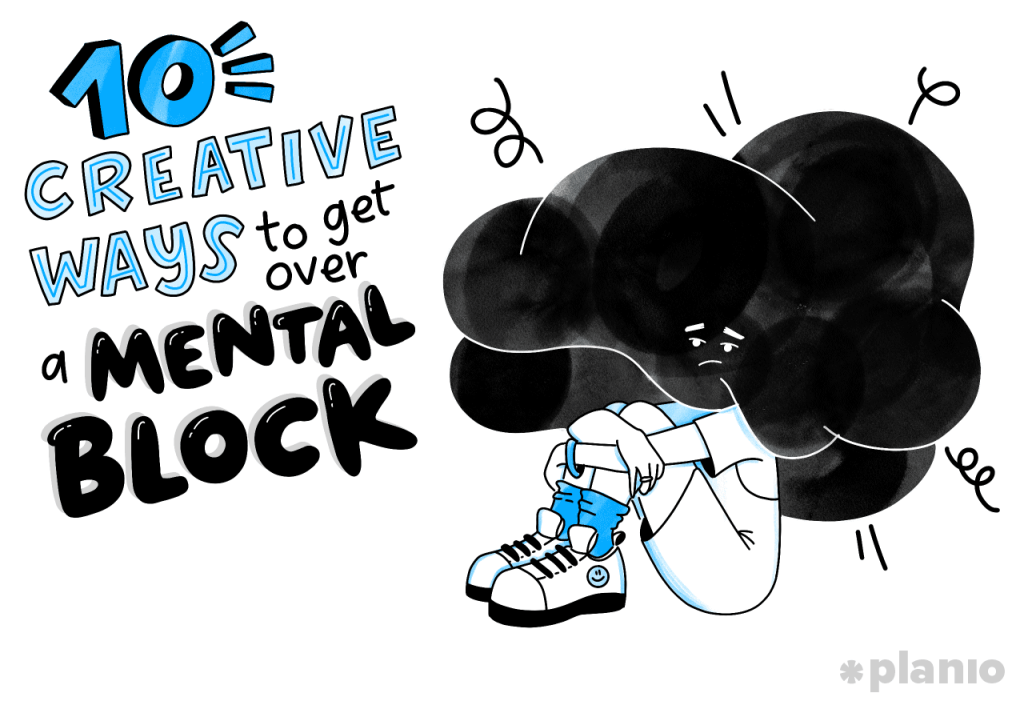How the Brain Responds to Different Types of Mind Games

The Cognitive World of Mind Games
Mind games serve as intriguing tools for understanding the complexities of cognitive function. Not only do they provide entertainment, but they also reveal how the brain engages with different types of challenges, offering insights into human thought processes and behaviors. Engaging with these games activates various cognitive domains including memory, problem-solving, creativity, and strategic planning.
Different types of mind games evoke varied responses:
- Strategy Games: These games, such as chess or the local *Ludu*, encourage players to think critically about their decisions. They require foresight and the ability to predict an opponent’s moves, which ultimately sharpens decision-making skills and fosters a competitive spirit.
- Puzzles: Engaging with jigsaw puzzles or word problems can enhance problem-solving skills and creativity. For instance, solving *Sudoku* challenges not only improves numerical reasoning but also builds pattern recognition. Such activities stimulate the brain and keep it engaged, enhancing cognitive flexibility.
- Memory Games: Games like the classic card-matching memory game can help improve recall and cognitive agility. They require players to remember locations of cards and strategize based on their recollections, effectively exercising memory pathways.
In Nigeria, traditional games like *Ayo* and *Ludu* are not merely forms of entertainment; they also play a vital role in enhancing mental agility among enthusiasts. These games create a social environment that encourages communal interaction, which in itself is essential for mental wellbeing. Engaging with local games offers a rich tapestry of culture while sharpening one’s mental faculties.
Understanding how the brain responds to mind games is crucial in developing strategies to enhance cognitive abilities. The brain exhibits remarkable neuroplasticity—the ability to reorganize itself by forming new neural connections. Engaging with mind games can facilitate this adaptability, serving as mental exercise that aids in maintaining cognitive health, particularly as we age.

Moreover, studies have shown that consistent participation in cognitive games can reduce the risk of age-related cognitive decline, promote mental clarity, and enhance overall emotional health. As we navigate through life, making conscious decisions to engage with various mental challenges can pave the way for a sharper, more agile mind.
As you reflect on your daily routines, consider incorporating a few mind games into your schedule. Not only will it be enjoyable, but it may also lead to significant improvements in how you think and interact with the world around you.
CHECK OUT: Click here to explore more
Unlocking Cognitive Enhancements Through Mind Games
The brain’s engagement with mind games is a fascinating interplay of cognitive processes that fuels exploration and learning. Across various games, players activate the brain’s neural networks differently, showcasing the remarkable versatility of our mental faculties. The challenge of navigating through complex puzzles or strategizing in competitive environments can lead to significant enhancements in specific cognitive abilities.
One of the primary responses seen in the brain during mind games is the increase in cognitive flexibility. This is particularly evident in strategy games. Each move requires players to draw on working memory and abstract reasoning, which are crucial for predicting outcomes and making informed decisions. For instance, in chess, players need to constantly reassess their strategies while anticipating their opponent’s moves. This dynamic interaction not only hones analytical thinking but also strengthens executive functions tied to planning and decision-making.
Similar effects can be observed with puzzle-solving activities. Engaging in activities like crosswords or riddles activates the left hemisphere of the brain, which is associated with language and logic. Studies suggest that these mind games can promote lateral thinking, enabling individuals to view problems from multiple perspectives. For example, Nigerian audiences often enjoy solving *Lateral Thinking Puzzles*, which require creative reasoning that can stimulate the brain’s synaptic connections.
Memory games, such as the traditional Nigerian game of *Ayo*, specifically target recall abilities, demanding players to remember locations and sequences. This exercise in memory not only helps improve cognitive agility but also enhances one’s ability to concentrate. As players engage in these activities, they essentially train their brains to become more efficient at storing and retrieving information, a skill that proves invaluable in day-to-day life.
Moreover, the incorporation of social elements into mind games cannot be overlooked. In many Nigerian cultures, games are often played with family and friends, fostering a sense of community while promoting cognitive engagement. The social interactions that accompany these games stimulate areas of the brain associated with empathy, thus enhancing emotional intelligence. Such engagement is vital for holistic mental wellbeing, counteracting isolation and promoting psychological resilience.
- Increased cognitive flexibility: Mind games like chess require adapting strategies.
- Improved problem-solving abilities: Puzzles promote creative and lateral thinking.
- Enhanced memory recall: Games like Ayo strengthen memory pathways.
- Boosted emotional intelligence: Social interactions during games enhance empathic abilities.
As we delve deeper into understanding how specific types of mind games elicit unique responses from our brains, it becomes clear that these activities are not merely pastimes, but avenues for mental development and lifelong learning. Engaging with these cognitive challenges could pave the way for healthier brain functioning as we age, making it essential to integrate them into daily routines.
| Category | Key Features |
|---|---|
| Cognitive Challenges | Engagement of problem-solving and critical thinking skills. |
| Memory Games | Enhancement of short-term and long-term memory retention. |
| Strategy Games | Improvement of planning and foresight capabilities. |
| Puzzle Solving | Stimulation of various brain regions for enhanced creativity. |
The brain’s response to mind games is multifaceted and deeply intriguing. Engaging in cognitive challenges like logic puzzles and mathematical problems prompts the brain to utilize its critical thinking skills, often resulting in increased cognitive flexibility. Similarly, memory games stimulate areas associated with memory processing, allowing individuals to boost their memory retention and recall abilities. When players participate in strategy games such as chess or complex video games, they are not merely entertained; they are actively enhancing their planning and analytical skills, which can be applied in real-life scenarios. Furthermore, puzzle solving activates different brain regions, fostering creativity and innovative thinking, which are vital for effective problem-solving in various domains. Thus, mind games are not just fun pastimes; they are powerful tools for cognitive enhancement and personal development.
CHECK OUT: Click here to explore more
The Neurological Responses to Competitive and Cooperative Mind Games
As we dive deeper into the brain’s response to different types of mind games, it’s essential to differentiate between competitive and cooperative games. Each of these categories elicits distinct neurological reactions that contribute to cognitive development and social bonding.
In competitive mind games such as cards or the Nigerian favorite, drafts (also known as checkers), players often experience heightened levels of adrenaline and tension, activating the brain’s reward system. Winning these games triggers the release of dopamine, a neurotransmitter that reinforces motivation and enhances pleasure. This biochemical response not only elevates the excitement of the game but also motivates players to engage in further strategic thinking and problem-solving, effectively honing their cognitive skills through enthusiastic participation.
On the flip side, cooperative games foster a different kind of engagement, one that emphasizes collaboration over competition. Games like the classic Nigerian game of Oware, which encourages collective strategy to achieve mutual goals, engage the brain’s social processing centers. In such scenarios, players must communicate, trust each other, and negotiate strategies, leading to the strengthening of social bonds. Neuroimaging studies have shown that cooperation activates the temporal-parietal junction—a brain region implicated in empathy and perspective-taking. This not only enhances social intelligence but also promotes a strong sense of community through shared experiences and teamwork.
- Competitive mind games: These games trigger dopamine release, enhancing motivation and cognitive skills.
- Emotional responses: Adrenaline rushes during competitive play can boost focus and decision-making skills.
- Cooperative mind games: Engagement in these games activates the brain’s empathy regions, promoting social bonding.
- Trust and communication: Cooperative gameplay encourages collaboration, enhancing social intelligence.
Furthermore, research has shown that mind games engaging both competitive and cooperative elements can yield the most profound brain benefits. Hybrid games, which require not just individual skill but also effective teamwork, can improve overall cognitive functioning and emotional wellbeing. For example, the rise in popularity of digital platforms that combine gaming with social interaction—like Ayo Online—provides an excellent illustration of this phenomenon. Players experience both the thrill of competition and the camaraderie of teamwork, highlighting the brain’s adaptability to varied social contexts.
Moreover, there’s a growing interest in how these mind games can serve as a preventive measure against age-related cognitive decline. Engaging in mind games on a regular basis promotes neuroplasticity—the ability of the brain to reorganize itself by forming new neural connections throughout life. This is critical as it means older individuals can maintain cognitive sharpness, potentially warding off conditions like dementia. The Nigerian gaming culture is rich with options that can easily be integrated into daily activities, making it an invaluable resource in the pursuit of mental health.
Thus, the exploration of how the brain responds to different types of mind games reveals a complex, enriching landscape of cognitive and emotional benefits that extend far beyond mere entertainment. Embracing these activities can play a vital role in enhancing both individual and communal experiences, ultimately leading to a more fulfilling life.
SEE ALSO: Click here to read another article
Conclusion
In summary, the intricate dance between the brain and mind games offers a captivating glimpse into our cognitive abilities and emotional frameworks. This article has explored the unique neurological responses triggered by competitive and cooperative games, revealing how these forms of play not only enhance our strategic thinking and problem-solving skills but also strengthen our social bonds. The rush of dopamine during competitive play invigorates our motivation, while cooperative games engage our empathy, fostering trust and collaboration.
The emergence of hybrid games has further spotlighted how the brain thrives in social contexts, demonstrating its remarkable adaptability. Platforms such as Ayo Online meld elements of competition and cooperation, inviting players to not only challenge their intellect but also build connections within their communities—an aspect that resonates deeply within the vibrant Nigerian gaming culture.
As research shows, regularly engaging in mind games sparks neuroplasticity, a critical factor in maintaining cognitive health, especially among older adults. By incorporating these mental exercises into daily life, we take proactive steps in preserving our mental acuity as we age. The benefits of mind games extend beyond mere amusement; they are powerful tools for enhancing both individual growth and communal ties.
Ultimately, embracing the diverse spectrum of mind games can significantly contribute to a healthier, more connected society. As we delve into the world of strategy and teamwork, the brain not only responds but thrives, opening avenues for lifelong learning and engagement. This invites us to reflect on our own gaming experiences and the mental landscapes they cultivate—challenges that are ripe for exploration in the ever-evolving narrative of human intelligence.


